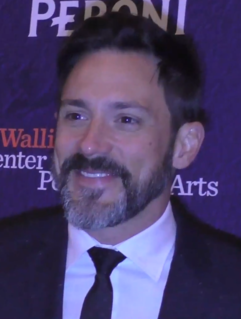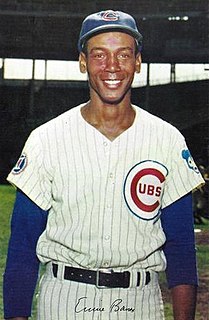A Quote by Elizabeth Bowen
No one of the characters in my novels has originated, so far as I know, in real life. If anything, the contrary was the case: persons playing a part in my life--the first twenty years of it--had about them something semi-fictitious.
Related Quotes
For the first time in my life I actually feel sorry for Carol. I'm only seventeen years old, and I already know something she doesn't know: I know that life isn't life if you just float through it. I know that the whole point- the only point- is to find things that matter, and hold on to them, and fight for them, and refuse to let them go.
What I strive to do is make my characters seem like real people so that the reader experiences them as people - that's something I've been working on all of my life. I couldn't have written this novel at twenty or thirty, for technical reasons - I didn't have the technique then - but above all because I didn't have the life experiences I have now at sixty-seven.
When my friends and I grew up, we had 'Full House,' 'Growing Pains' and 'Roseanne.' These sitcoms were about something, about real people in a sense. They sort of super-sized real life where things aren't necessarily exactly how you go through them in daily life, but you can relate to something, and you can pull something out of it.
As to the "traditional filler of twenty-first century realist fiction," maybe that is something I avoid. I don't relate to standard psychologizing in novels. I don't really believe that the backstory is the story you need. And I don't believe it's more like life to get it - the buildup of "character" through psychological and family history, the whole idea of "knowing what the character wants." People in real life so often do not know what they want. People trick themselves, lie to themselves, fool themselves. It's called survival, and self-mythology.
You must create the character's internal life. What do I mean by internal life? I mean the thoughts, feelings, memories, and inner decisions that may not be spoken. When we look into the eyes of actors giving fully realized performances, we can see them thinking. We're interested in what they're experiencing that may never be spoken, that quality of nonverbal expression - which is as much a part of the characters as breathing and as real as what they say and do. This is their internal life. It helps us believe in the characters and care about them.
When people watch me on TV, they see part of my life. I wanted to let them know the real me behind the scenes. The child who was a concert violinist from the age of six. The young woman who took on the challenge to compete in the Miss America pageant. The television journalist for twenty-five years.
This man, who for twenty-five years has been reading and writing about art, and in all that time has never understood anything about art, has for twenty-five years been hashing over other people's ideas about realism, naturalism and all that nonsense; for twenty-five years he has been reading and writing about what intelligent people already know and about what stupid people don't want to know--which means that for twenty-five years he's been taking nothing and making nothing out of it. And with it all, what conceit! What pretension!
I've never written a fiction before about real people. . . . I read everything that I could find by people who met them and tried to get some impression of them, but as always when you write fiction, even if you have completely fictitious characters, you start by thinking of what is plausible, what would they say, what would they be likely to do, what would they be likely to think. At some point, if it is every going to come to life, the characters seem to take over and start speaking themselves, and it happened with [COPENHAGEN].







































